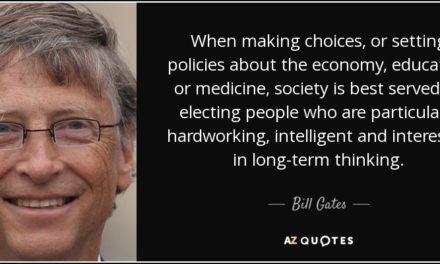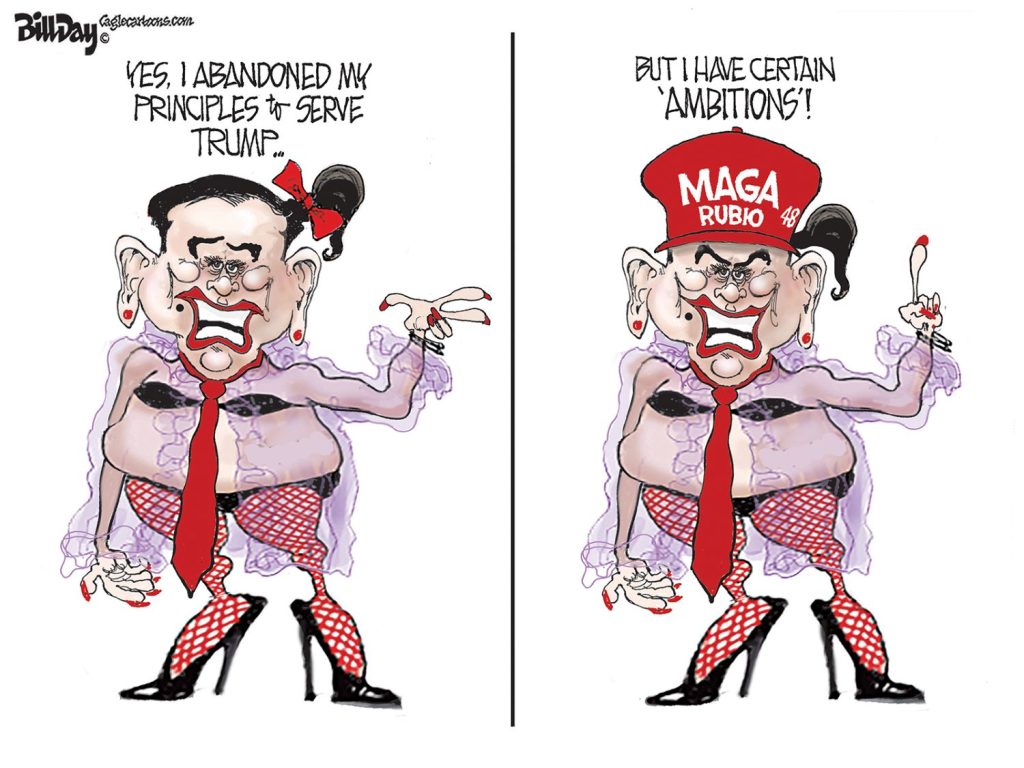William Fulton is the Mayor of Ventura, California, and a principal in the planning consulting firm of Design, Community & Environment (www.dceplanning.com). The following is excerpted from his new book, Romancing The Smokestack: How Cities And States Pursue Prosperity:
Twenty-five years ago, when I first started writing about economic development, the governors of seven states went on The Phil Donahue Show — the premiere daytime talk show of its time — begging General Motors to build the assembly plant for its brand-new Saturn brand in their state.
It was, to put it bluntly, a pretty pathetic excuse for an economic development campaign. Even though auto assembly plants don’t literally have smokestacks, this was a pretty stark example of politicians trying to find a short-cut to economic success through the standard technique of “romancing the smokestack” — wooing some out-of-town business in hopes that they will come to town. I always counted the Donahue show as the lowest point in the history of American economic development — especially since none of the seven states got the plant.
At least the Donahue show seemed like the low point until earlier this year, when Ohio Gov. Ted Strickland made a YouTube music video begging basketball star LeBron James to re-sign with the Cleveland Cavaliers. The YouTube music video managed to trivialize both the economic development goal and the means by which that goal is pursued. Somehow a talk show seems almost statesmanlike compared to a music video. And have we sunk so low that the holy grail of economic development is not an auto assembly plant but an individual basketball player? Not that it much mattered. In the end, making a music video didn’t work any better than going on a talk show. The Saturn plan went to Tennessee — at least until GM killed the brand last year — and LeBron went to Florida.
If the humorous failures listed above teach us anything, it is this: There is no magic bullet for prosperity. You can’t just romance the smokestack and hope to succeed, especially in the long run. But there are ways to maximize the chances of enduring success.
To read the rest of the article, click here.





“…great cities, large and small, are powered by great prosperity, and the smartest cities — just like the smartest businesses — understand that they have to continually plow the fruits of their prosperity into sustaining and reinventing themselves.’
Great quote by the author. Reinventing is reinvesting profits ((a.k.a recirculation of capital) for the next crop of entrepreneurs or ideas. Recirculation – works great for biology, probably works well for communities too.
Right on Aron, we all gotta work, but we should always ask work for what?? Yes we should be open to new business and try to keep jobs here, but with an objective eye. Memphis metro area has 1.3 million folks, we can do anything we want if we just believe in ourselves and try. No it is never easy, so the faceless, nameless Memphis haters can just sit this out and go drink another beer, while the rest of us keep the City and community going. Larry
I agree Larry. But problems extend beyond the faceless, nameless Memphis haters. It is just as much people like David Pickler and his racist ilk that hold Memphis back.
Not really Bocefius. It’s the American mindset of self-entitlement entrenched in our culture that holds us back. It starts with us and advocating for a mindset ( mainly though our own actions) that allows us to see beyond our own agenda and ambitions. To be able to see how what we do effects the future and well-being of others. This change in thinking will provide for a more durable hopeful future for our own kids. We can point fingers forever and be exactly where we are now.
^
|
Racist
Jones-
I fail to see how Aaron’s comment is racist or as I like to say- ethnically biased. It was personal agendas, mostly rooted in the desire to maintain the current leadership and power structure in both the city and county, that resulted in the defeat of the consolidation measure. The ability for many of the city’s leaders to invest in a greater future despite potential real and political costs in the present is both the topic of this post and recent local events.
A major point inherent in this concept is reinvestment of wealth in order to ensure a healthy and ever evolving local economy. The examples given- Silicon Valley as well as the airports in Dallas and Denver were themselves made possible by earlier investments and economic activity in those locations.
Leveraging Stanford to create Silicon Valley was the result of several series of the investment- reward- reinvestment cycle. The Gold Rush was invested in San Francisco/ Bay area as a major port and industrial center as well as local cultural and educational institutions. This investment yielded quality universities and industrial base that was leveraged to create Silicon Valley. The ability to invest in Denver International Airport was made possible thanks to earlier and continued wealth resulting from mineral and energy development which centered on that city. Dallas invested early agricultural and transportation wealth in continued transportation improvements and more importantly in finance and wholesale activities. These allowed for the wealth necessary to develop an energy market which yielded the dividends necessary to create DFW and further diversify that region’s economy.
Until recently, Memphis and its leaders seem to have been very complacent in their investments being largely limited to transportation infrastructure with investments in the city’s educational institutions (universities) and efforts to diversify the local economy being an afterthought at best. The wealth generated by this focus can is questionable. Yes we have FedEx, but has thousands of acres of warehouses and their low wage employment generated the wealth necessary to lead efforts to diversify our own economy?
@Joe Johnson
You should join them, as you’re a part of the problem in this city and not the solution, you proud, pompous, despicable, mudslinging, hateful, heartless, Memphis-bashing-at-every-turn lowlife. Go do something else constructive with your life rather than being destructive with your tongue and ego. Unlike you, many of us do care about Memphis and the strides being taken to make it a better place.
/end rant
Now, as for the article itself, it’s a great read and speaks volume about how cities can find their niche by not always chasing the next big thing. Memphis has to find its niche, but it won’t be an easy task to achieve. The building blocks are there, but you need someone who is willing to build in order to make that happen.
SCM, maybe a little editing so we don’t get distracted by this socially inept and/or psychotic individual?
What is lost, and perhaps perceived as racist, in the pursuit of either “smokestacks” or the creation of Silicon Valley-like economic centers is the reality of a LARGE population that was recruited to Memphis to provide labor for the transient forest products and manufacturing industries that fizzled in the 60s and 70s.
The departure of these jobs left behind residential communities with no immediate employment opportunities and we’ve largely failed to prepare this population for jobs in any of the emerging sectors.
I lived in Silicon Valley when it was born from the bulldozed ashes of orchards and farms. Yes, it is or was, an economic success for those that flocked to the nexus of Stanford-Berkeley-Santa Cruz intelligentsia and the new age psychedelia of Marin, Monterrey and San Francisco. But the folks that lived their before the computer-tech revolution didn’t fair so well. They were left behind economically and/or pushed out by development and rapidly rising taxes and costs of living.
We must caution ourselves to bail all our collective boats as we move forward to recreate Memphis and insure all residents participate in our future prosperity. We must revitalize the abandoned commercial-industrial corridors that run through our most impoverished neighborhoods and see to it that those living in chronic un and under employment have opportunities to work.
Not all folks have or will achieve the mantra of “Every day. Every Child. College Bound.”. We need to encourage the creation of jobs for all levels of education and skill sets. This comes with community self reliance and self support–locally owned and operated manufacturing, services and support industries instead of big chain box stores and imported goods, community interdependence rather than economically and socially gated communities.
Our biggest mistake of late was/is to pile all of our federal commercial revitalization resources into one project profiting an out of town company. When will we learn?
SB-
If only it were that simple.
SB-
One point though regarding the local populations employed in the brief period of major manufacturing here in Memphis. I agree that those populations were not prepared for a transition to other industries. However, seeing as we actively pursued an economic sector that requires little in the way of skills- distribution- these populations should have been able to find employment quickly. Of course, we are now 40 to 50 years after the time period mentioned. Many of these individuals, even if in their 20’s at the time, would be approaching retirement at this point. It is the next generation that was not prepared for a the new economic landscape. You would think that both their parents and the community would have learned its lesson by depending on the rapidly evaporating manufacturing sector. Unless you plan to tamper with and enact constraints on the relatively free capitalist form of the economy at a local scale, it is going to be hard to force a return or rebirth of manufacturing within a community which lacked many of the skills to support it the first time.
The distribution industry opportunities were not sited within reasonable distance to the residential neighborhoods in need of the jobs and no reasonably efficient transportation system was put in place to get them there. The subsequent generation was doomed to be plagued by social problems inherent to the poverty and lack of opportunities inherent to the resulting un(der)employment.
Putting the fault on the community is as specious as blaming welfare programs for the poverty that they address. Many of the generation abandoned by industry are now retired, holding on to the homes that represent the only assets they have, surrounded by the crime and decay resulting from the lack of employment opportunity.
And yes, I do suggest that we need to make a more conscious and intentional effort at local economic planning, starting with the abandonment of the I-69 highway which will precipitate the migration of your vaunted distribution jobs away from the neighborhoods now housing the workforce serving them and resulting in a whole new set of un(der)employed neighborhoods that will suffer the same fate as the older manufacturing ones.
Scott-
I agree with most of your points. You will please allow me to note that I did not blame the “community” as the single source for the current issues that threaten the livelihoods of those we are discussing. It is one of the factors in that the community did not utilize this brief period of time to ready itself for the coming transition from industrial to post-industrial landscape. I also hope that the distribution employment you believe I was boasting of was meant in a sarcastic light. If you have read any of my other rather long winded comments, you would know I am very critical of the city/ region’s prolonged focus on distribution focused economic efforts. It is easily forgivable if you have not. My comment was meant as a criticism of a choice made by an earlier generation based on antiquated economic models.
What I was questioning goes beyond simple land use planning. I was asking what efforts you would suggest that would permit the creation of locally based and focused manufacturing opportunities that would allow for employment opportunities sans a college degree. One of the reasons such efforts have seen limited success is due to the nature of our current economic landscape. If the locally produced product is more costly than a similar mass produced and cheaper product, the vast majority are going to choose the more affordable option especially in a city where poverty is so pervasive. It’s one thing to tell people to buy locally produced products, it is quite another to enable them to afford such products.
Urbanut, I would never think that you would lay blame on the victim alone. You are most notably deeper than that in your thinking. Of course I was being sarcastic about the distribution sector being a viable basis of our economy–in reality it serves the very cheaper to make it in China that has undermined our local self sufficiency, and secondary value added industries.
A starting point on the creation of locally based manufacturing and support industries would be public policy that required and/or incentivized the use of local contractors, materials and manufacturers for all public projects.
Another step would be the adoption of policy that removed the barriers to commercial property reuse and directed available federal commercialization revitalization resources to the congressionally intended targets rather than mooching out of state corporations.
Reintroduction of trades/vocational education in our public schools would provide a labor base that would be more cost competitive and give potential local manufacturers an edge in the global marketplace.
The importing of consumer goods from China or other emerging economies won’t remain so competitive in coming days of transportation fuel sources. America will need it’s manufacturing capacity back and Memphis is perfectly positioned to be a leader in its rebirth.
Scott-
Thanks, I wanted to make sure that I had not set the conversation back in any way. The ideas behind creating a small viable manufacturing base seem sound in concept and at least then we might see our public expenditures cycle through the local economy more than once. Higher costs could be justified in that a percentage of each dollar spent would be directly recouped through sales and property taxes as opposed to paying a temporary employee that will vacate the area (with the earned income) once a contract has been fulfilled. At least it would be a start.